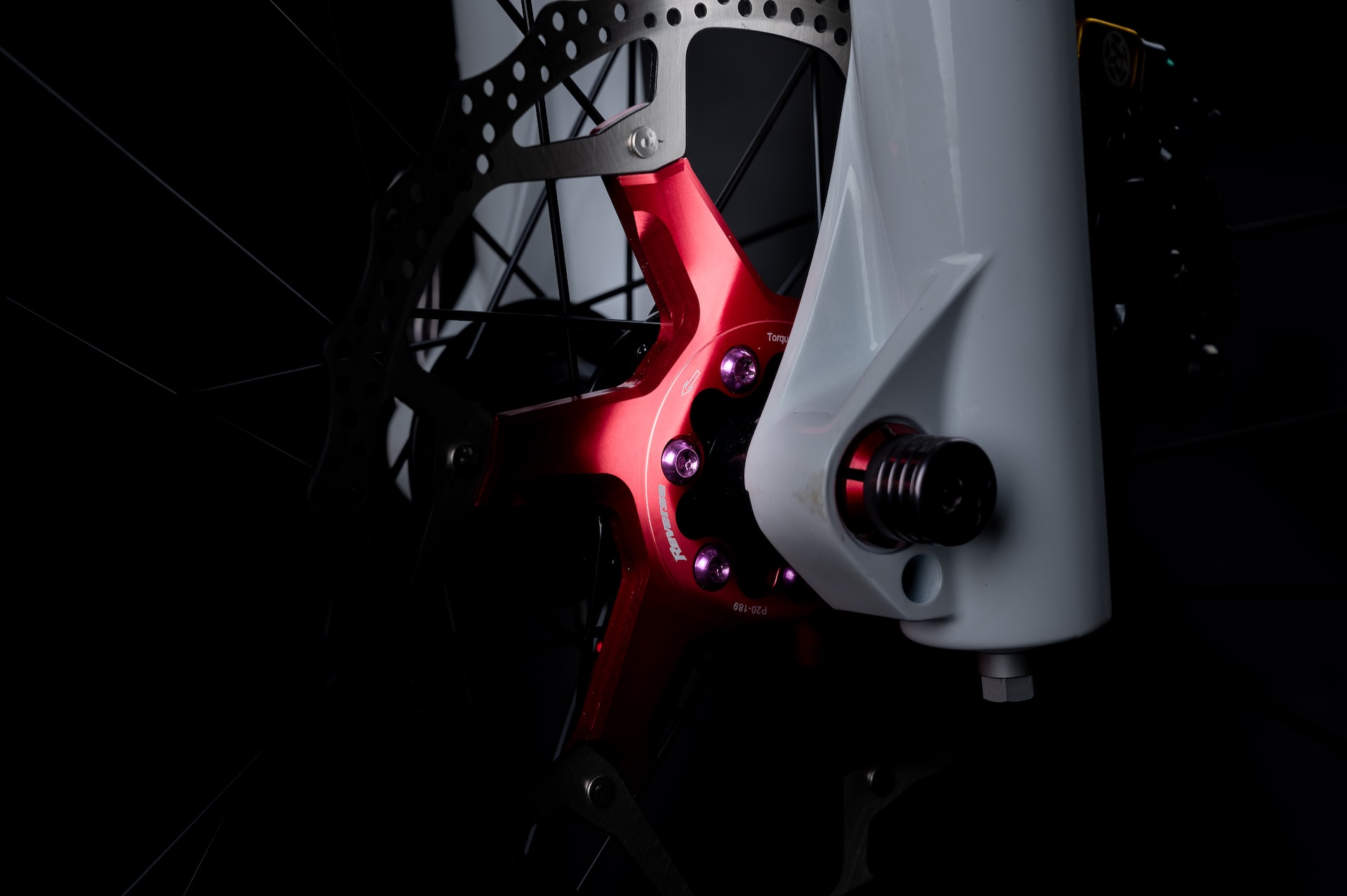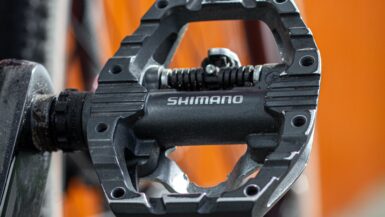A mountain bike fork is a critical component that plays a crucial role in the performance and handling of the bike. The fork connects the front wheel to the frame, absorbs shocks from bumps, and jumps on the trails. Various mountain bike forks are available, and choosing the best one for your specific terrain and rider preferences can significantly impact your riding experience. In this article, we will explore the different types of mountain bike forks and their characteristics and provide tips for selecting the best fork for your needs.
Types of Forks for Mountain Bikes
For mountain bikers, having the right fork can be the difference between an enjoyable and uncomfortable ride. When deciding on the best mountain bike fork, you must factor in terrain, rider preference, and weight. Here we’ll look at the different mountain bike forks available and what they can offer.
Rigid Forks
Rigid forks are an excellent choice to save weight and money. They’re made from steel, aluminum, or carbon and lack any suspension, making them the lightest mountain bike fork. Without suspension, they are better suited to flatter and smoother trails.
Hardtail Forks
Hardtail forks are the most basic suspension fork, offering some travel and dampening but no rear shock. This fork is a good choice for rocky trails, offering more control than a rigid fork for a relatively low price and minimal weight penalty.
Dual Crown Forks
Dual crown forks are best suited to downhill racing, providing the most suspension travel of any mountain bike fork. They are usually made from aluminum and feature double crowns for added stiffness and adjustable travel for more control. They are not designed for lighter trails and can be pretty heavy.
Travel Adjustable Forks
Travel adjustable forks are the best choice for riders who want the most control over their riding experience. These forks are flexible and can be set to different travel points, allowing riders to adapt their suspension to diverse terrain. They are heavier than hardtail forks but handier for riders who plan to tackle various trails.
Budget Forks
For those on a tighter budget, there are budget forks that provide decent performance on a budget. These forks can be made from steel or aluminum and offer some suspension, though they are basic and don’t have adjustable travel. They are a good choice for beginners and those who don’t plan to tackle particularly rough terrain.
Choosing the best mountain bike fork for your needs depends on the type of terrain you plan to ride, your riding style, and your budget. With the different types of forks available, there’s a fork for every rider and terrain.
Terrain Considerations for Mountain Bike Forks
Choosing the right mountain bike fork for your type of terrain and riding style is essential for a safe, enjoyable ride. The landscape you plan to ride on and your personal preferences will play a significant role in selecting the best mountain bike fork.
Dry Rocky Trails
If you’re riding on dry, rocky trails, you’ll want a fork that can withstand the impact of the rocks and provide you with stability as you cycle. A rigid mountain bike fork with some travel lock feature is ideal for rocky trails, so you don’t feel every rock beneath your wheels.
Technical Trails
Riding technical trails, such as those with tight switchbacks, large drops, and plenty of rocks, requires a fork that can handle the rigors of the terrain. Many riders opt for a suspension fork with a lot of travel to absorb the shock of the trail. The more journey your fork has, the better it will be able to absorb impacts and provide you with a smoother ride.
Gravel or Road Riding
A suspension fork is not necessary for riders who prefer gravel roads or pavement. A rigid fork is usually refined if the terrain comprises small rocks or bumps. However, if the road is full of large potholes or debris, you may opt for a suspension fork with some travel for an extra smooth ride.
Cross-Country Riding
Cross-country (XC) riders will want a lightweight fork that offers some degree of suspension. Most XC forks have only between 80 and 120 millimeters of travel. This is enough for light- and moderate-trail riding, but if you plan to ride more technical trails, go for a fork with more travel.
Considering the terrain and the riding, you plan to do, you can find the best mountain bike fork for your needs. With the right fork, you’ll be able to enjoy your ride to the fullest.
Forks for Cross-Country Riding
Cross-country (XC) riding is a popular form of mountain biking that focuses on speed and efficiency over challenging terrain. When looking for the best fork for XC riding, you must consider how much travel you need, how much weight you want to add to your bike, and what kind of performance you’re looking for.
Considerations for Cross-Country Forks
When selecting the best XC mountain bike fork for your needs, there are several features and components to consider. Here are some important factors to keep in mind:
Travel
The amount of travel you need from an XC fork will depend on the type of cross-country riding you do. Usually, a hardtail XC bike will need about 80-100mm of travel, while a full-suspension XC bike will need a fork with 120-140mm of travel.
Weight
XC riding often involves long distances and challenging terrain, so weight is essential when choosing a fork. Cross-country race forks are made from lightweight materials like carbon fiber, aluminum, and titanium to help keep the overall bike weight down.
Performance
The performance of an XC fork is vital for maintaining speed and efficiency on the trails. Look for forks with adjustable travel, lockout capabilities, and dampening technology, such as Fox’s FIT4 or Float X2, for maximum trail performance.
The Best XC Forks
There are some great options when choosing the best XC mountain bike fork. Some top-rated XC forks include the Fox 34 Float SC Factory, RockShox SID SL, and the Magura TS8 R Air. These forks offer excellent performance, adjustable travel, and lightweight construction.
Forks for Trail Riding
Trail riding calls for a different type of fork than the ones best suited for a cross-country or gravel setup.
Travel Distance
The best mountain bike fork for trail riding will have a longer travel distance than a cross-country fork. This ensures that you’re able to get through more challenging sections of the trail with ease. Look for forks with 120-180mm travel to balance agility and cushioning.
Strength and Durability
Trail riding can be rougher on your bike than cross-country riding, so you’ll want to ensure your fork is strong enough to handle the terrain. Look for options made with high-grade materials like aluminum, titanium, or carbon fiber. Also, be sure to opt for a suspension system that can handle a variety of impacts and terrain.
Adjustability
Having an adjustable suspension system can be a game-changer when it comes to trail riding. The ability to quickly adjust your fork on the fly allows you to fine-tune your ride based on the terrain. Look for forks with adjustable rebound, pressure, and damping that you can access on the fly.
Price
While you want to ensure you get the best mountain bike fork for your trail riding needs, you don’t want to break the bank. You may have to sacrifice some features to stay within your budget, but you should be able to find a quality fork for a reasonable price.
Forks for Downhill Riding
Downhill riding requires a heavy-duty fork to handle the extreme conditions encountered on the trail. Downhill forks must provide a combination of stiffness, strength, and adjustability to ensure the best performance from your bike.
Construction and Strength
Downhill forks need to be extremely stiff and strong to handle the abuse of the terrain. Most forks feature a one-piece alloy construction to provide maximum stiffness and durability. The steerer tube is also beefed up for increased strength.
Adjustability
Adjustability is crucial for a downhill fork so that it can be customized to the rider’s needs. Most forks feature adjustments for compression and rebound damping, air spring pressure, and lockout.
Trave l
Downhill forks usually offer a lot of travel – usually up to 200mm – to provide enough cushioning for the big drops and jumps. The longer the journey, the more plush the ride will be.
Weight
Downhill forks are usually heavier than other types of forks due to the added strength and stiffness that is required. Depending on the construction and features, most downhill forks can range from 4.0 lbs to 7.0 lbs.
Weight Considerations for Mountain Bike Forks
Weight is essential when choosing the best mountain bike forks for different terrain and rider preferences. A lighter fork will mean the bike will be easier to maneuver, while a heavier fork can provide better stability and damping on rough terrain.
Weight vs. Performance
When considering the right weight for mountain bike forks, it is crucial to strike a balance between performance and weight. Heavier forks are generally more robust and stiffer, providing better damping and stability. But they also add more weight to the bike. Lighter forks may be easier to maneuver, but they can be less stable and provide less damping when riding on rough terrain.
Mountain Bike Fork Weight Ranges
The weight of mountain bike forks varies widely depending on the material and design but generally falls into the following categories:
- Lightweight forks: These may weigh as little as 2.5 lbs (1.1 kg) and are designed for cross-country, lightweight trail, and downhill riding.
- Medium-weight forks: These typically range from 3.5 lbs (1.6 kg) to 4.5 lbs (2 kg) and are designed for aggressive trail and all-mountain riding.
- Heavyweight forks: These may weigh as much as 6.5 lbs (2.9 kg) and are designed for downhill and freeride riding.
Finding the Best Mountain Bike Fork for Your Needs
The best mountain bike fork for your needs will depend on your riding, the terrain you ride on, and your personal preferences. Consider the weight of the fork and its performance, and talk to an experienced bike mechanic or shop if you need further advice.
Durability Considerations for Mountain Bike Forks
Choosing the best mountain bike fork for your particular terrain and rider preferences is crucial for your comfort and safety. But durability is also vital. Forks for different terrain and rider preferences differ significantly in materials used and construction. Therefore, it is crucial to consider the durability of a mountain bike fork when making a purchase.
Types of Mountain Bike Forks
Mountain bike forks come in various materials, depending on the terrain and the rider’s needs. Steel and aluminum are the most common materials, but carbon fiber and titanium are also popular. Each material has its advantages and disadvantages in terms of durability. Steel forks tend to be the sturdiest and most durable but also the heaviest and often the most expensive. Aluminum forks are lighter and more affordable, but they are also less stable. Carbon fiber and titanium forks are incredibly lightweight and can provide an ideal ride for speed-focused riders, but they can also be quite expensive and prone to damage.
Suspension Considerations
Many mountain bike forks are built with suspension, which adds another layer to the durability and rides quality considerations. Suspension systems come in either rigid or full-suspension varieties, each of which has its pros and cons in terms of durability. Rigid forks are more affordable, but they can be more prone to damage since they lack the cushioning effect of suspension. On the other hand, full-suspension forks provide better cushioning but can also be more expensive.
Cost Considerations for Mountain Bike Forks
Choosing the right mountain bike fork is highly dependent on budget. There are a variety of forks out there that range from budget-friendly to high-end and expensive.
Budget-Friendly Mountain Bike Forks
If you are on a tight budget, there are several budget-friendly mountain bike forks that you can consider. These include coil springs, basic entry-level suspension forks, and steel legs. Coil springs are the most affordable option and offer your mountain bike’s most basic form of suspension. Entry-level suspension forks are also a budget-friendly option and provide a combination of lightweight design with basic suspension features. Steel legs are also a more affordable option, as they are heavier than any other mountain bike fork.
High-End Mountain Bike Forks
High-end mountain bike forks offer a variety of advanced features and are typically made with lighter materials, such as carbon fiber. These forks are the most expensive option but provide the best performance and durability. High-end forks are built with the latest technology and offer adjustable suspension systems, air-sprung systems, tapered headset compatibility, and more.
Overall, the cost of mountain bike forks depends on the features you are looking for and the budget you have available. Consider your budget and preferences when selecting your mountain bike fork.
Choosing the Right Mountain Bike Fork
When it comes to mountain biking, finding the right fork can be essential to riding safely and comfortably. Mountain bike forks vary and provide different advantages depending on the terrain and the rider’s preferences. Here are some tips for choosing the right mountain bike fork for your next ride.
Types of Mountain Bike Forks
The most popular mountain bike forks are hardtail, suspension, and fat. Hardtail forks are designed for efficient pedaling on smooth trails and are usually lightweight. Suspension forks are grand for absorbing shock on rough terrain and typically have adjustable settings. Fat forks are grand for tackling deep sand, mud, and snow and generally feature more than 140 mm of travel.
Consider Your Riding Style
When choosing a fork, consider your riding style. You’ll want a lightweight hardtail or suspension fork if you’re a cross-country rider. If you’re into freeride mountain biking, you’ll want something more robust with more travel. Fat forks are best for riders tackling deep sand, mud, or snow.
Material and Durability
Mountain bike forks are available in many materials, such as aluminum, steel, carbon fiber, and titanium. Aluminum is the most common fork material and is usually the most affordable. Steel forks can be heavy but are solid and durable. Carbon fiber forks are lightweight and strong but expensive. Titanium forks are even lighter than carbon fiber but are even more costly.
Weight and Geometry
When choosing a mountain bike fork, consider the weight, geometry, and rake. Lighter forks are grand for climbing and less fatiguing for long rides. Longer forks are grand for steering stability. Wider forks can add to the stiffness of your bike. The rake is the angle of the fork and affects the bike’s handling, so it’s essential to choose a fork with a rake that’s appropriate for your riding style.
Conclusion
When choosing a mountain bike fork, it’s crucial to consider the durability of the material and the suspension options. Steel and full-suspension forks are typically the most durable but can also be pricier, while aluminum and rigid forks are more affordable but may not provide the same level of durability. Ultimately, the best mountain bike fork for your terrain and rider preferences will depend on your budget, riding style, and personal preferences. Consider the type, material, durability, weight, geometry, and rake when selecting your mountain bike fork. With the right fork, you’ll be able to optimize your mountain biking experience for whatever terrain you ride.






Leave a reply